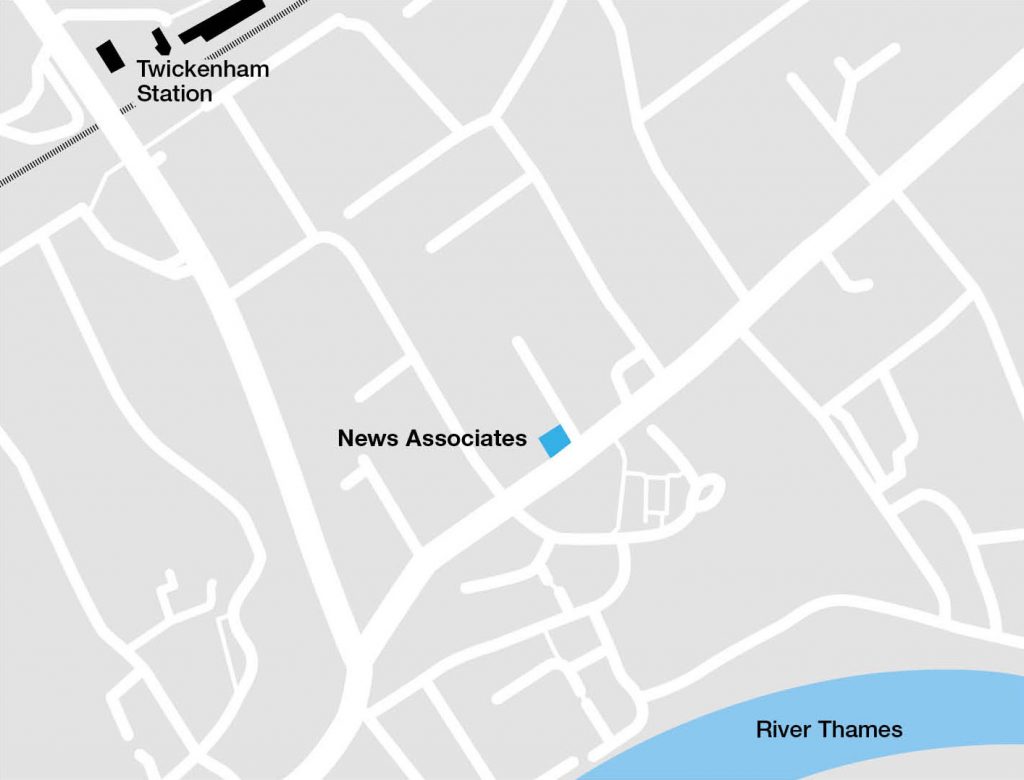News Associates
Ampersand House
49-53 York Street
London
TW1 3LP
News Associates London is based in leafy-green Twickenham. Ampersand House is a five-minute walk from Twickenham train station.
Come out of the station and walk left over the bridge down London Road then take a left turn down Arragon Road and follow the road round.
Turn left onto Richmond Road and the office is on the left-hand side.
If you are coming from Richmond train or tube (District line) station then the 33 bus (Elton Street, stop L) takes just six minutes (eight stops), get off at York Street Twickenham (Stop G) and walk one minute back up Richmond Road (keep Pizza Express on your left) and the office will be on your left.

If studying in London isn’t an option for you, you can study fully remotely on our 18-month part-time course.
You are welcome to sit exams with us in London and join us for journalism work placement on Wednesdays, but that is entirely optional.


